Just a few months after the AMD Ryzen 7 9800X3D graced us with its presence, the Ryzen 9 9950X3D brings its 3D V-Cache technology to a 16-core, 32-thread gaming processor that's absolutely overkill for most people. However, it has no problem keeping up with powerful graphics cards like the Nvidia RTX 5090 or whatever comes next. The sheer power of this processor comes with a high $699 price tag and a 170W power budget, making it a challenging recommendation for anyone not building an incredibly powerful and expensive gaming PC. For most gamers, the Ryzen 7 9800X3D remains the more sensible choice.
Purchasing Guide
The AMD Ryzen 9 9950X3D will be available starting March 12, with a suggested retail price of $699. Keep in mind that the prices of AMD's processors can fluctuate based on demand.
AMD Ryzen 9 9950X3D – Photos
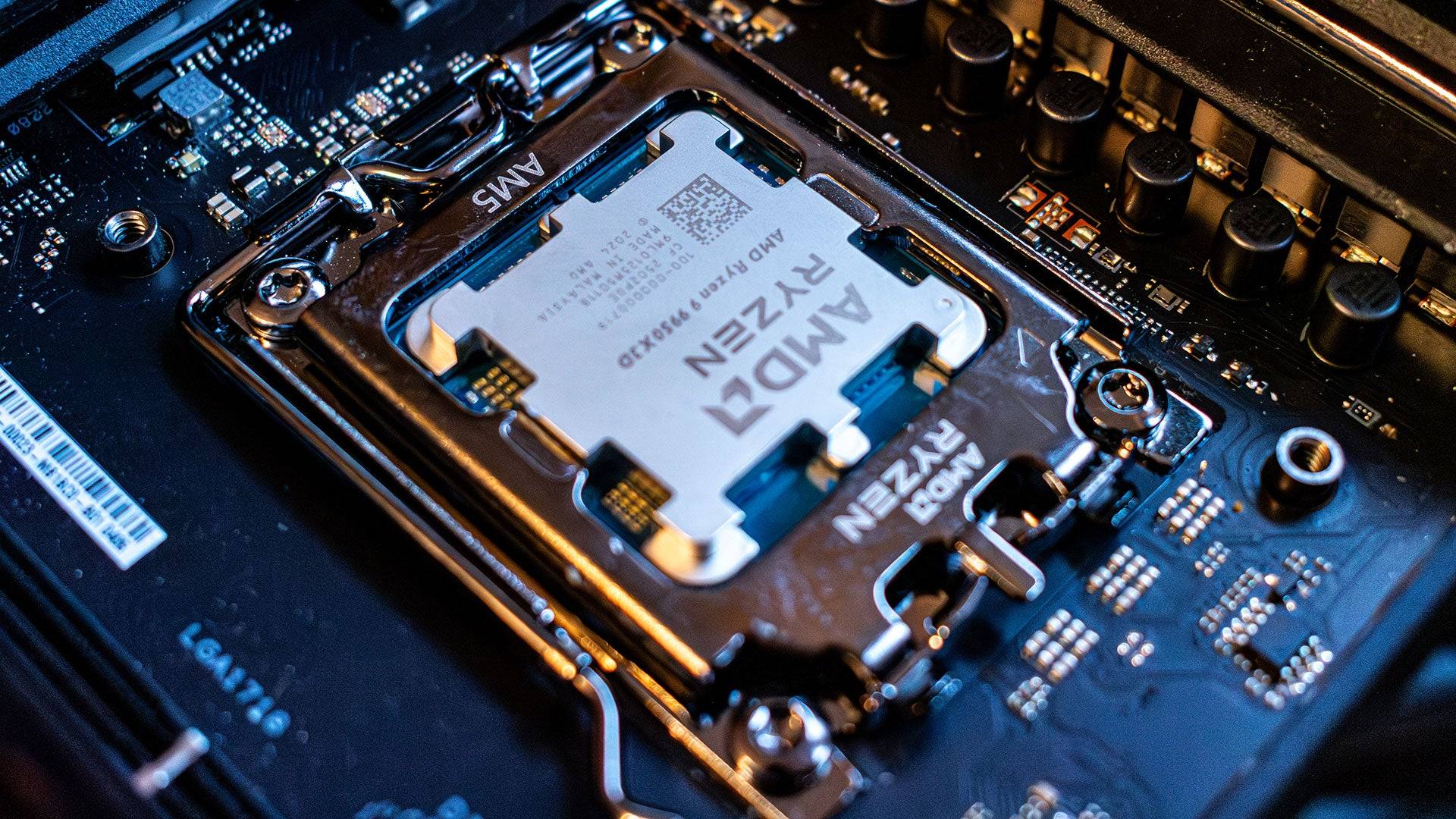
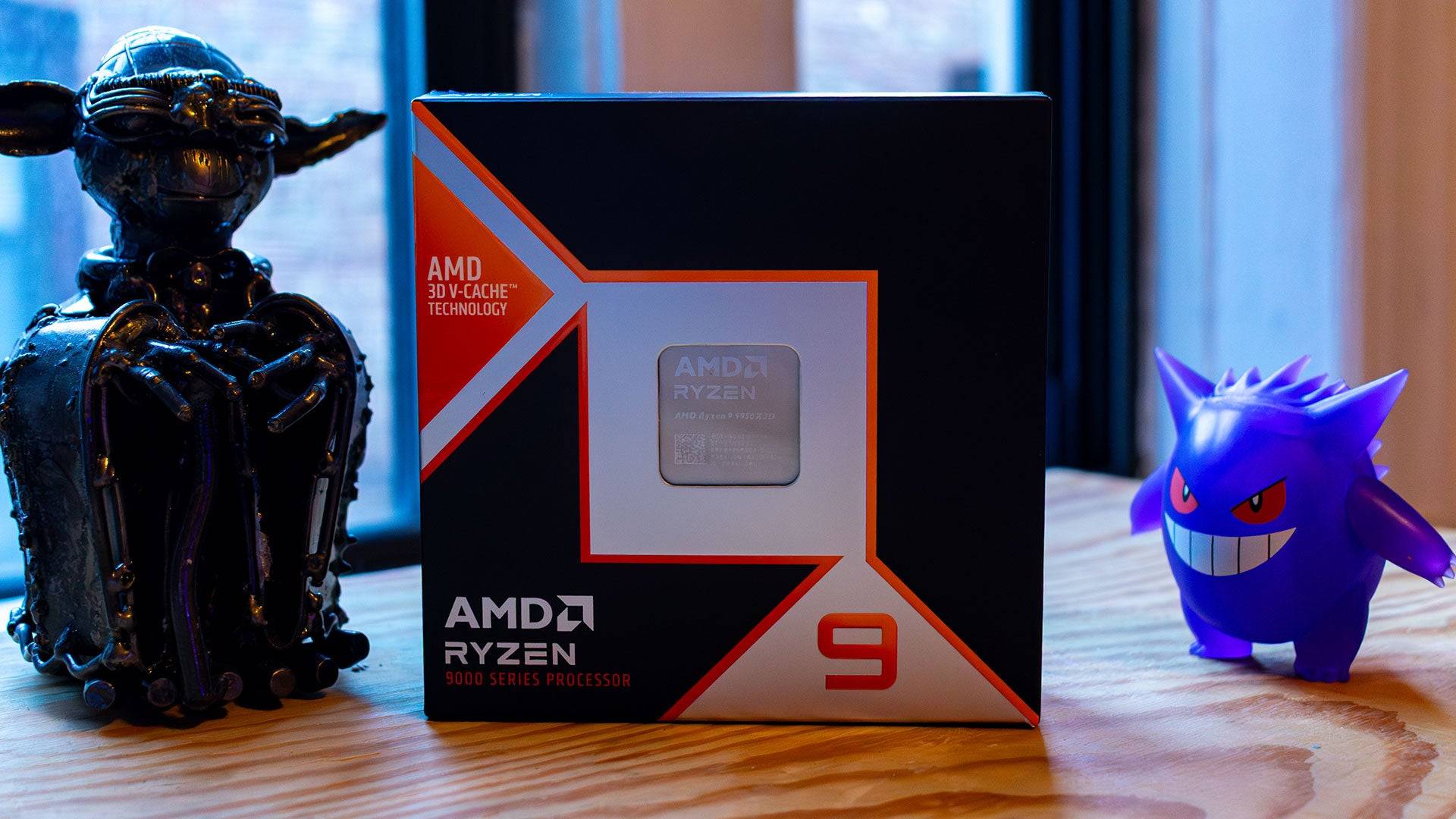 3 Images
3 Images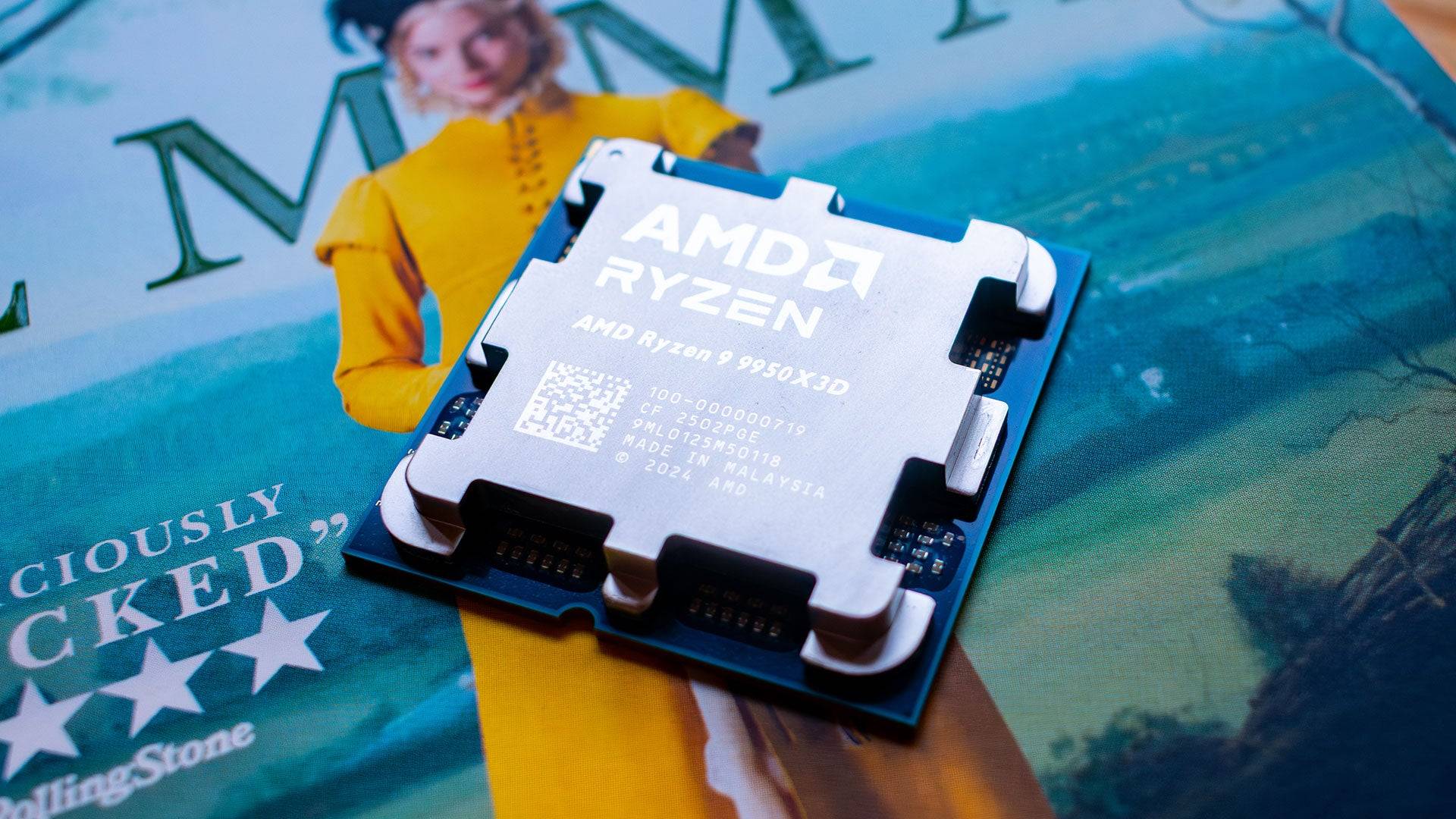
Specs and Features
The AMD Ryzen 9 9950X3D leverages the same Zen 5 cores as the regular 9950X but enhances them with the new 2nd-generation 3D V-Cache, similar to what's found in the Ryzen 7 9800X3D. This combination ensures not only excellent multi-core performance but also superior gaming performance thanks to the expanded cache.
Unlike its predecessor, the Ryzen 9 7950X3D, the 3D V-Cache in the 9950X3D is positioned beneath the actual CPU cores, rather than above them. This design change significantly improves thermal performance. With the Core Complex Die (CCD) producing most of the CPU's heat, its proximity to the Integrated Heat Spreader (IHS) facilitates better heat dissipation. Consequently, AMD's performance algorithm can leverage this thermal headroom, allowing the Ryzen 9 9950X3D to run faster and longer.
The strategic placement of the cache also reduces data travel distance, thereby lowering latency. Moreover, the cache size has been increased, with the 9950X3D boasting a combined 144MB of L2 and L3 cache. This matches the last-generation Ryzen 9 7950X3D and significantly exceeds what you'd find in any non-X3D processor.
Both the AMD Ryzen 9 9950X and 9950X3D share a 170W TDP, though the original 9950X has a higher potential PPT. In my testing, both processors peaked at 200W, but the 9950X3D achieved a lower peak temperature of 79°C, albeit on a different cooler than the 9950X.
Fortunately, the 9950X3D is compatible with any AM5 AMD motherboard since it doesn't require a new chipset. AMD has committed to supporting this socket until at least 2027, ensuring you won't be stuck with an outdated platform.
AMD Ryzen 9 9950X3D – Benchmarks
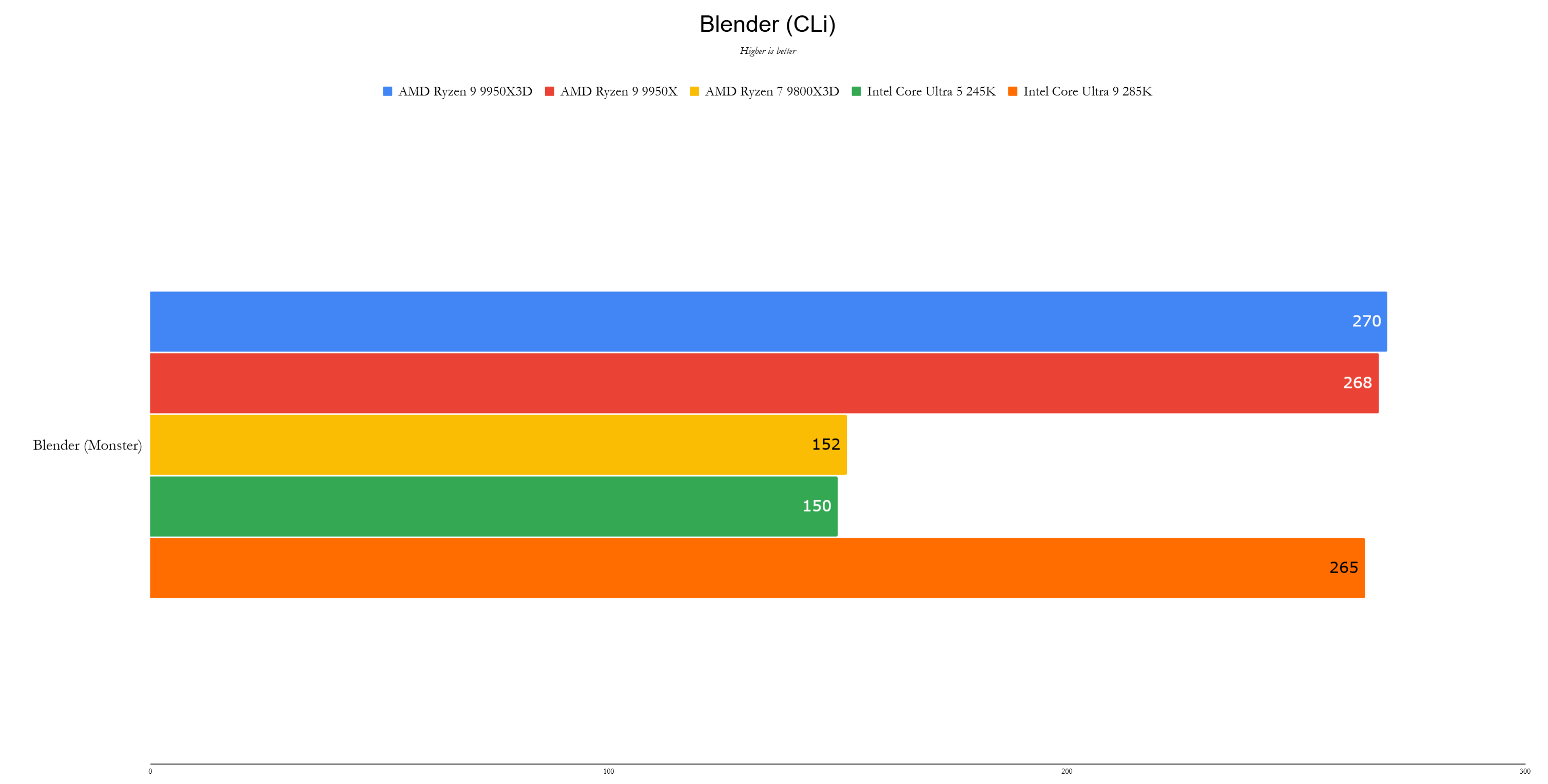
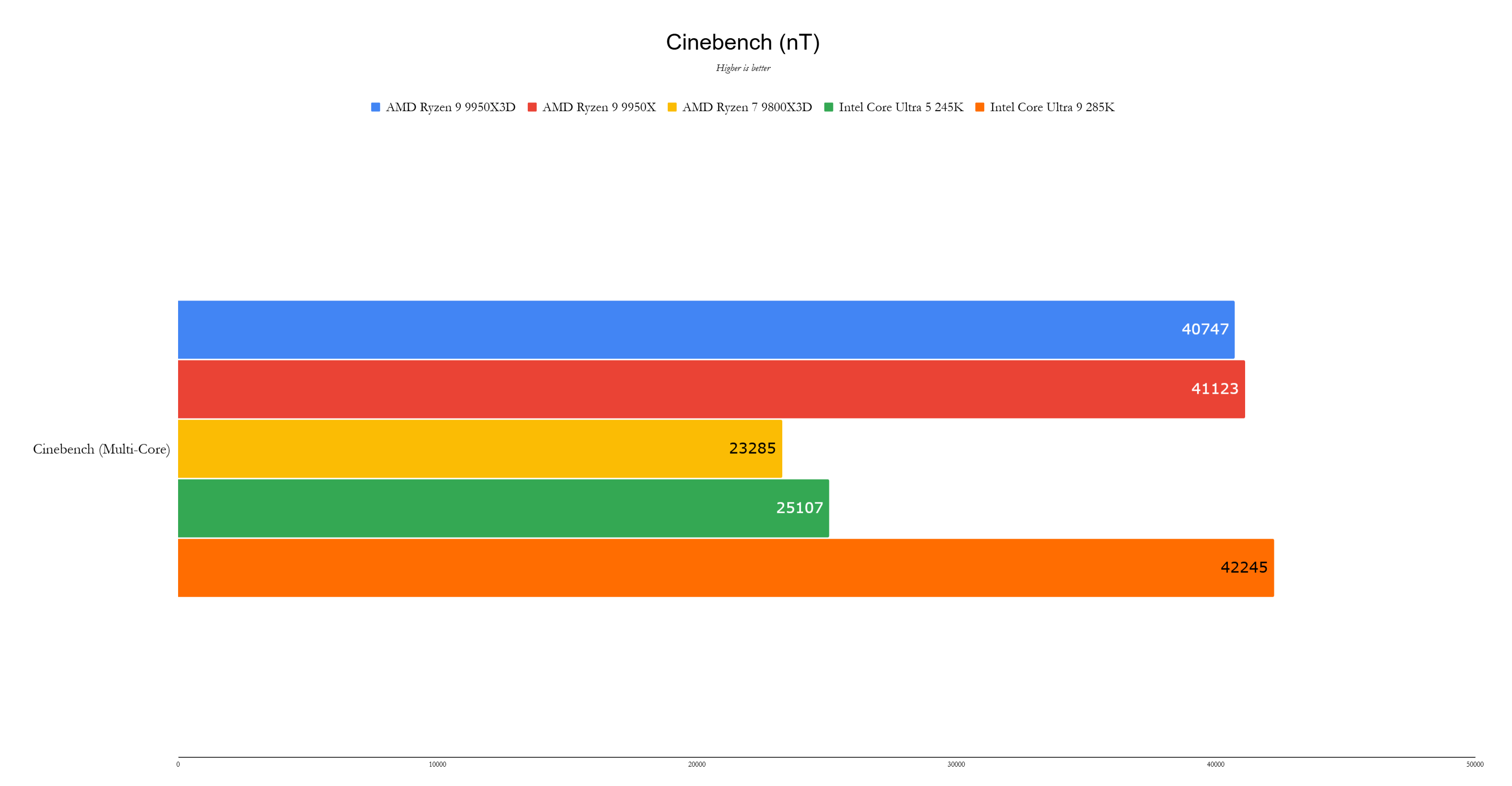 11 Images
11 Images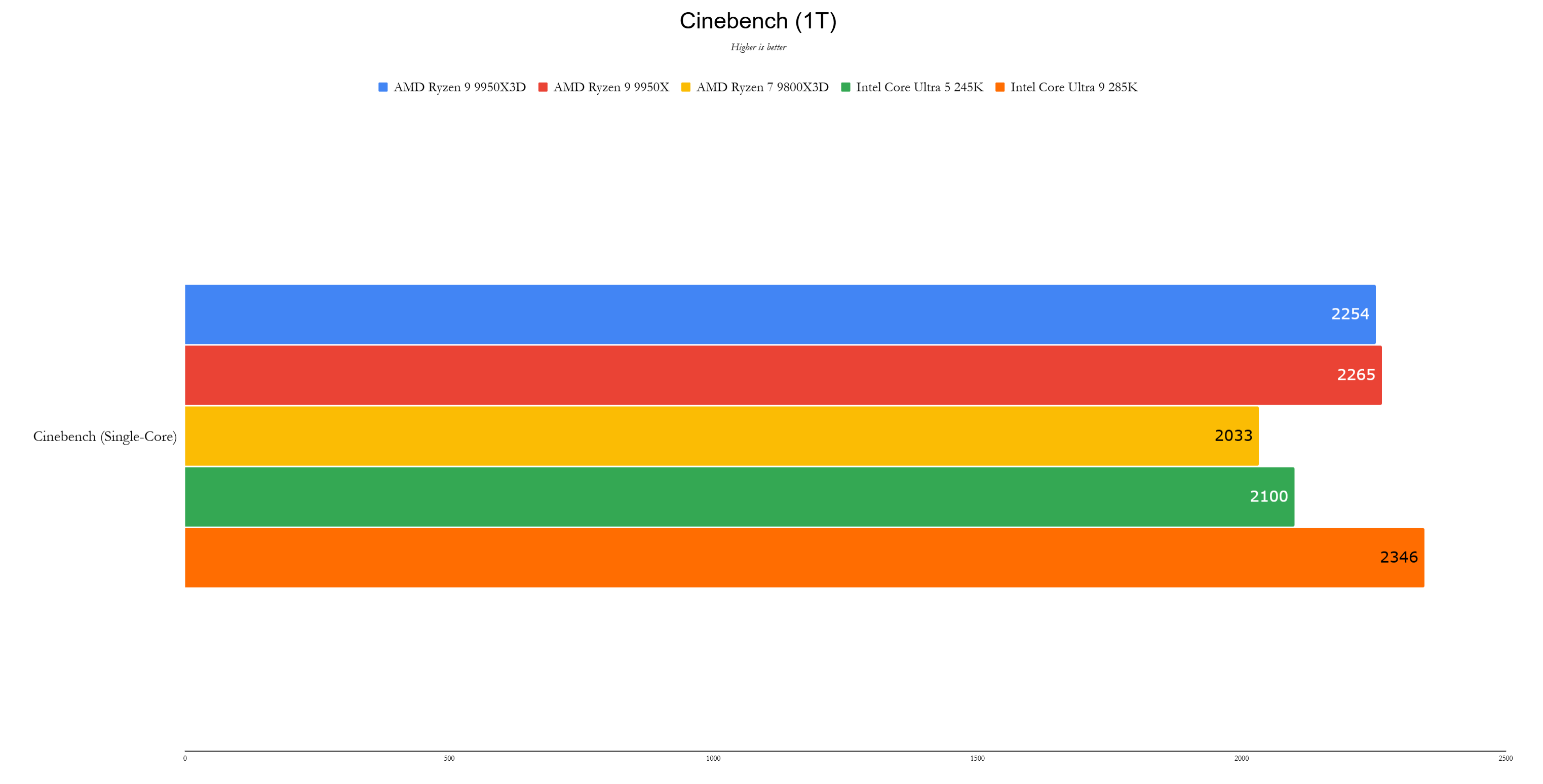
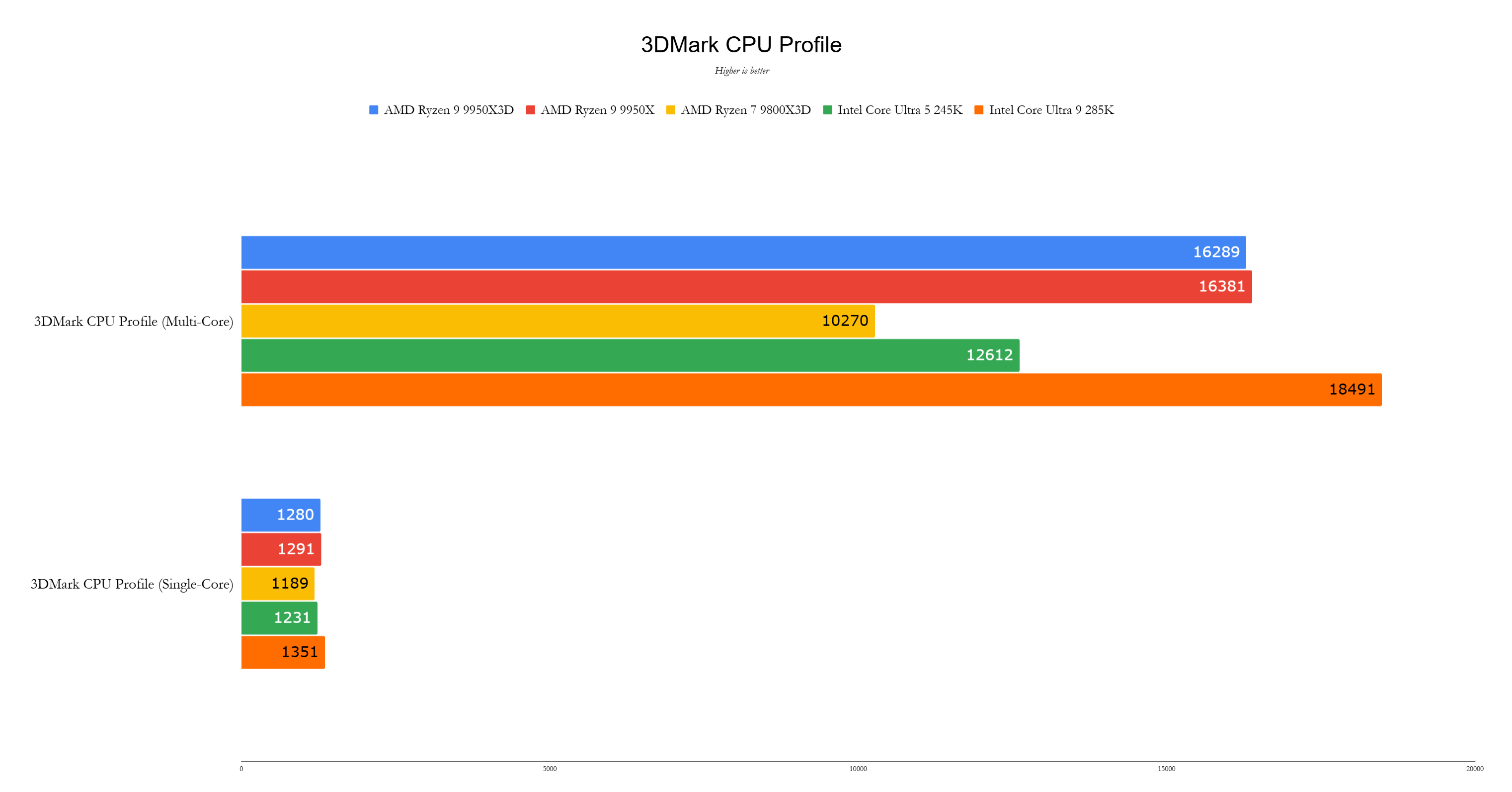
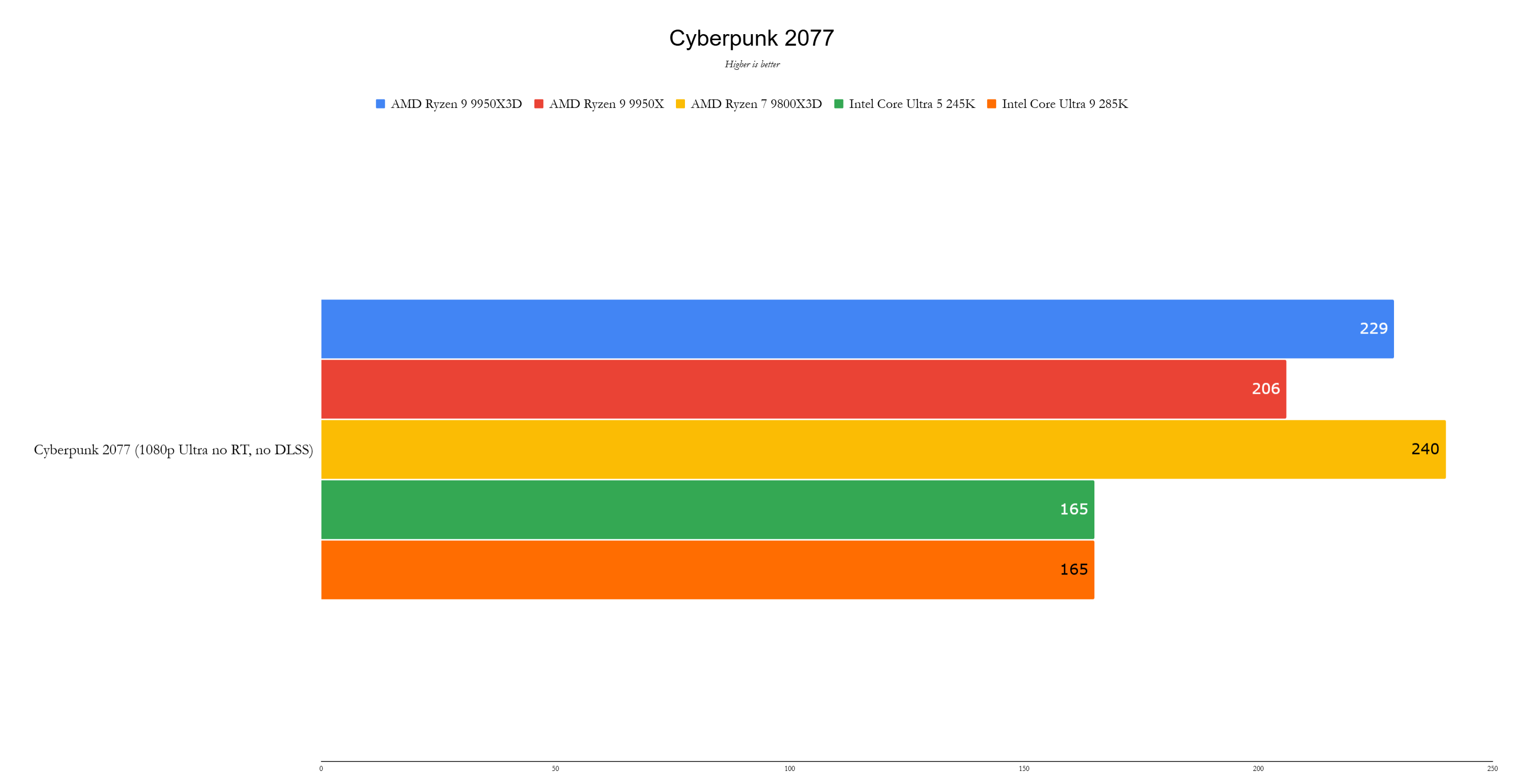
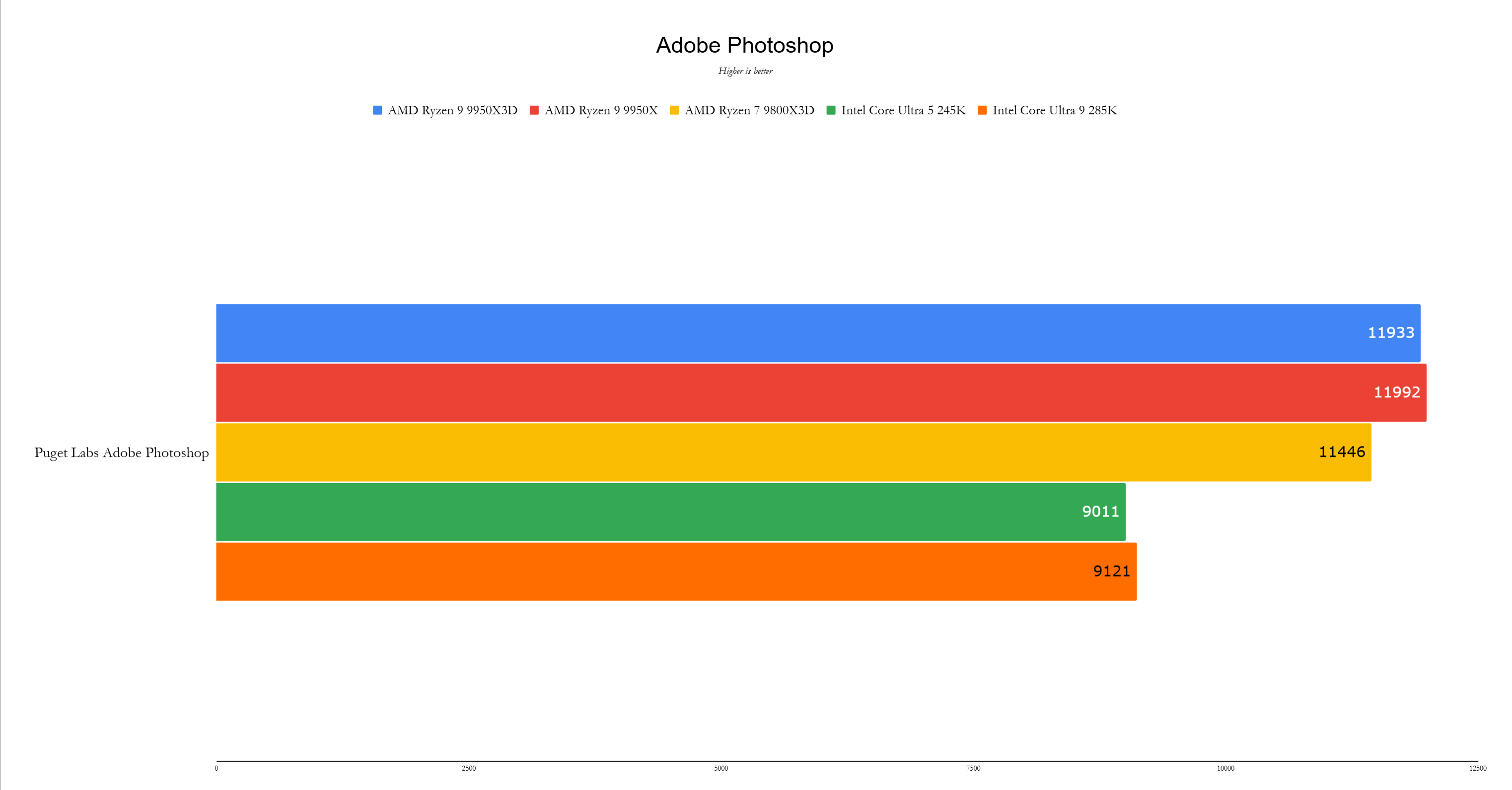
Performance
Before delving into performance results, it's important to note that all CPUs were tested on the same hardware, except for the Ryzen 9 9950X, which was tested on an Asus ROG Crosshair X670E Hero motherboard with a Corsair H170i 360mm AIO cooler. While this difference in hardware might influence performance, the impact is likely minimal, especially since all tests were conducted at stock settings.
AMD Test Bench:
GPU: Nvidia GeForce RTX 4090
Motherboard: Asus ROG Crosshair X670E Hero; Asus ROG Crosshair X870E Hero (9800X3D)
RAM: 32GB G.Skill Trident Z5 Neo @ 6,000MHz
SSD: 1TB PNY CS3140 Gen4x4 NVMe SSD
CPU Cooler: Asus ROG Ryujin III 360 ARGB Extreme
A minor hiccup occurred when one of the mounting screws for the Asus ROG Ryujin III 360mm cooler snapped during the swap to the 9950X. I will retest the processors in the coming weeks and update this section if significant differences arise.
The AMD Ryzen 9 9950X3D, with its 16 cores, 32 threads, and a massive 144MB cache, delivers exceptional performance. Even in creative benchmarks where the 9800X3D lagged, the 9950X3D competes with the most powerful chips available.
Intel Test Bench:
GPU: Nvidia GeForce RTX 4090
Motherboard: Asus ROG Maximus Z890 Hero (200S); Asus Prime Z790-A (14th-Gen)
RAM: 32GB Corsair Vengeance DDR5 @ 6,000MHz
SSD: PNY CS3140 1TB Gen 4 x 4 NVMe SSD
CPU Cooler: Asus ROG Ryujin III 360 ARGB Extreme
Surprisingly, the 9950X3D also excels in single-core workloads compared to the 9800X3D. In Cinebench 1T, it scores 2,254 points against the 9800X3D's 2,033 points, showing a 10% improvement. In the 3DMark CPU Profile test, it achieves 1,280 points, nearly matching the Intel Core Ultra 9 285K's 1,351 points.
In multi-threaded workloads, the Ryzen 9 9950X3D shines, scoring 40,747 points in Cinebench's multi-core test. Although it slightly underperforms compared to the 9950X's 41,123 points and the Intel Core Ultra 9 285K's 42,245 points, the trade-off is well justified by its enhanced gaming performance.
In gaming benchmarks, the 9950X3D achieves 274 fps in Total War: Warhammer 3 at 1080p with Ultra settings, outperforming the 9800X3D's 254 fps and the Core Ultra 9 285K's 255 fps. However, in Cyberpunk 2077 at 1080p with the Ultra preset and ray tracing disabled, it delivers 229 fps, falling short of the 9800X3D's 240 fps but still significantly outpacing the 165 fps from the competing Intel processor.
Overkill?
While the AMD Ryzen 9 9950X3D may be the most powerful gaming processor currently available, it doesn't automatically outshine every other chip on the market. For most users, the Ryzen 7 9800X3D, priced at a more affordable $479, will suffice.
The 9950X3D is ideal for gamers who also engage in creative applications like Photoshop and Premiere, where it offers a 15% performance boost over the 9800X3D. For those focused solely on gaming, however, it might be wiser to invest the extra $220 in a superior graphics card.

 Related Articles
Related Articles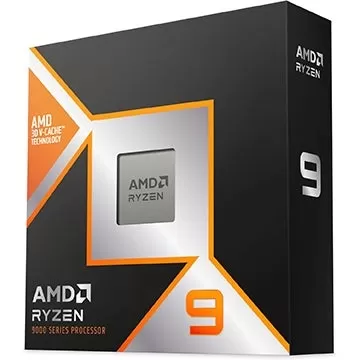
 Apr 19,2025
Apr 19,2025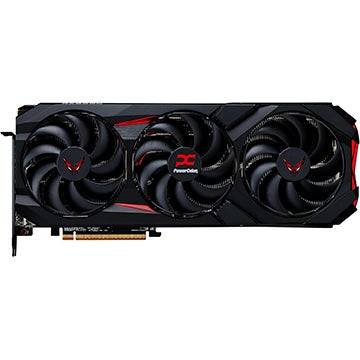
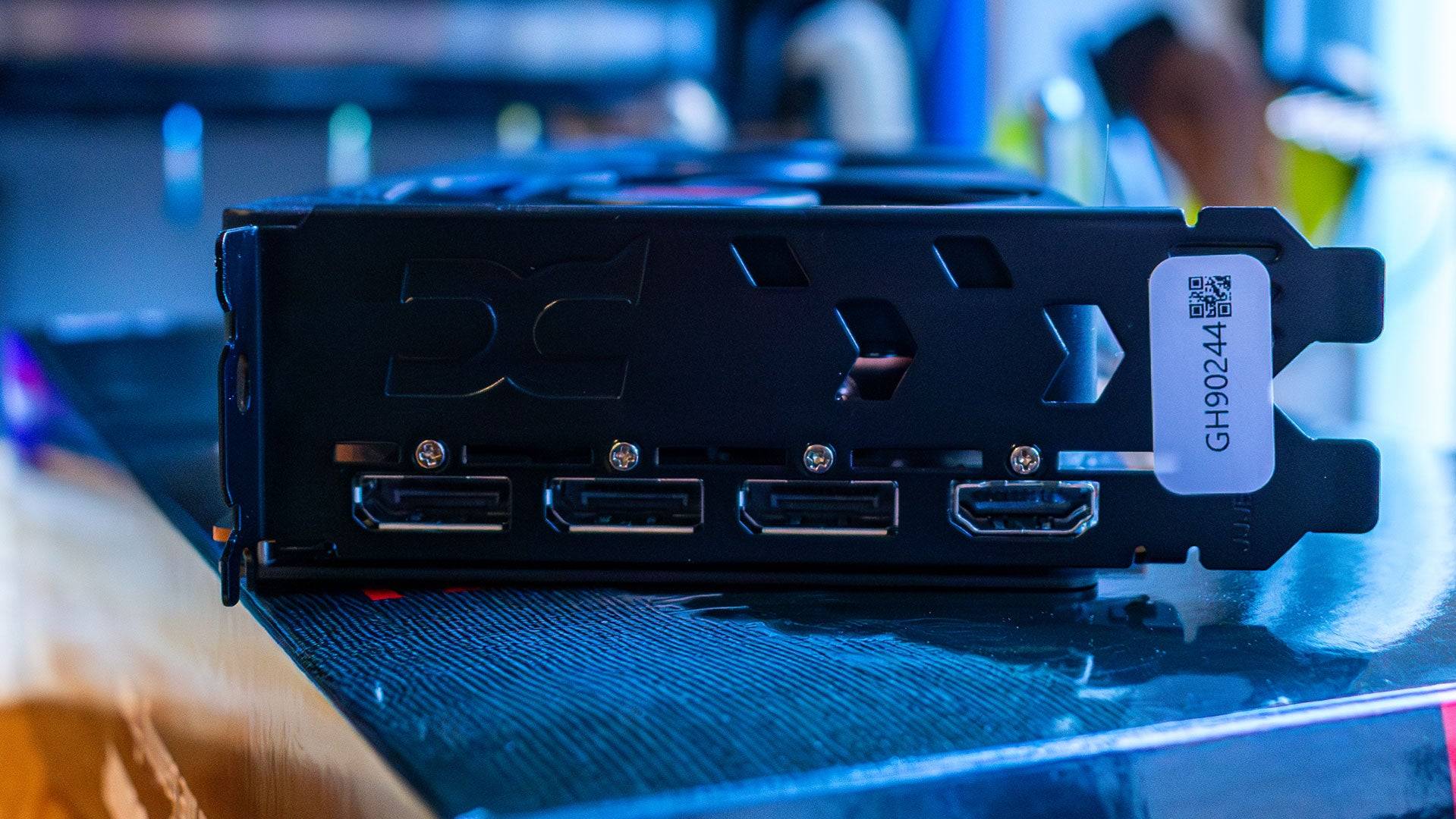
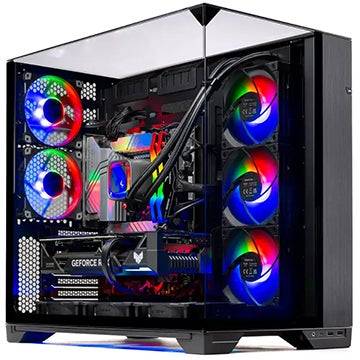
 Latest Downloads
Latest Downloads
 Downlaod
Downlaod











![Cockham Superheroes – New Version 0.5.2 [EpicLust]](https://images.5534.cc/uploads/36/1719595948667ef3acb2d9e.jpg)


